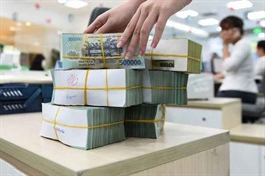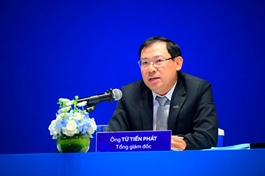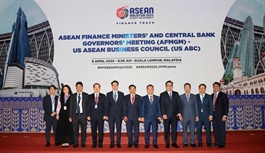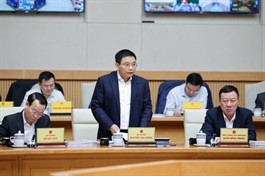Banks join forces to support infrastructure and technology investments
Banks join forces to support infrastructure and technology investments
Commercial banks have hailed the government’s $20 billion credit package aimed at supporting infrastructure and digital technology.
On April 10, the State Bank of Vietnam (SBV) held a meeting with commercial banks to discuss the credit package, targeting businesses investing in infrastructure and digital technology.
SBV Deputy Governor Dao Minh Tu stated that the banking sector has implemented synchronised solutions to boost credit growth and meet capital demands for production and business, as well as for firms to embrace infrastructure and digital transformation ventures.
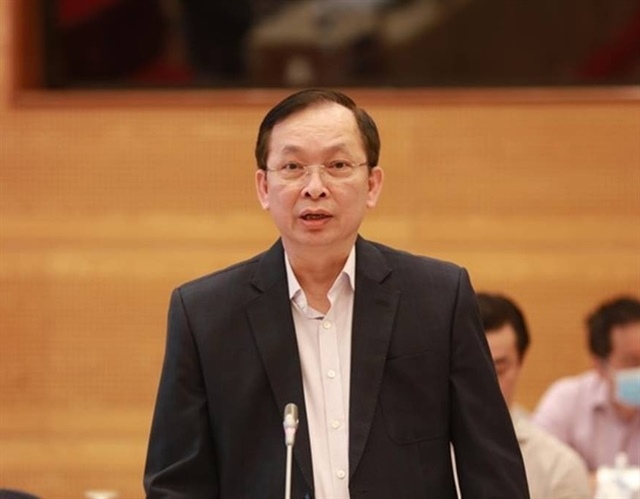
Deputy Governor Dao Minh Tu at the April 10 meeting. Photo: baodautu.vn |
The meeting aimed to ensure effectiveness and substance, reflecting the banking sector’s proactivity and commitment to supporting businesses and promoting economic growth.
At the meeting, the banks agreed in principle with the policy to roll out the $20 billion credit package. Many banks are already financing key national infrastructure projects.
Specifically, state major Vietcombank is financing the Lao Cai-Vinh Yen power transmission line, the Nhon Trạch 3 and Nhon Trach 4 power plants, and Long Thanh International Airport.
Meanwhile, VIB has been funding infrastructure projects such as build-operate-transfer (BOT) infrastructure and power production and transmission projects, including partial financing for a 500kV power transmission line.
A VIB representative shared that the bank plans to deploy a credit package worth $200-$400 million with interest rates about 1 per cent lower than market averages, in alignment with the state’s strategic policies.
Phung Thi Binh, deputy general director of Agribank, confirmed the bank’s readiness to support business development, but emphasised the need for clear delineation of responsibilities in lending, so that banks can implement these programmes with confidence.
Le Quang Vinh, CEO of Vietcombank, stressed that credit is a vital tool to effectively support businesses. However, for banks to support firms in these sectors, particularly innovative tech enterprises, he proposed considering mechanisms for equity contribution and benefit-sharing instead of applying traditional lending models.
Alongside allocating capital for priority customers, banks are introducing early-stage support policies for clients impacted by the new US reciprocal tariff policies.
Several banks also suggested mechanisms for debt restructuring, maintaining debt classifications, and offering interest and fee reductions.
As this is entirely commercial lending, Deputy Governor Dao Minh Tu appreciated the banks' proactive participation.
Tu, however, noted that while disbursing this package, banks must ensure compliance with standard credit conditions, avoiding the loosening of credit criteria.
Support mechanisms would be provided in terms of interest rates, loan terms, and co-financing arrangements with clients.
“The SBV encourages broader participation from various banks under the principle that large banks undertake larger portions, and smaller banks take on smaller roles. In particular, state-owned commercial banks need to play a leading role and demonstrate stronger responsibility towards the economy,” Tu said.
He also said commercial banks should determine and publicly disclose applicable rates and interest calculation methods for borrowers, with the goal of helping clients lower capital costs, thereby propelling infrastructure and digital technology investments.
The disbursement period will extend until 2030, or until the full credit package has been disbursed.
At the same time, banks need to intensify communication and outreach efforts to ensure that eligible beneficiaries are well-informed and actively participate. They are also required to submit quarterly reports to the SBV detailing implementation progress each quarter.
- 13:31 11/04/2025






